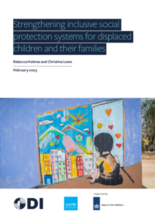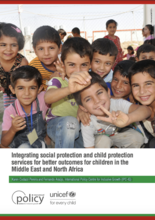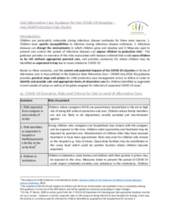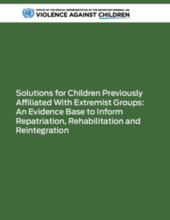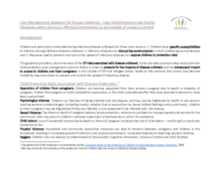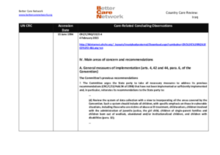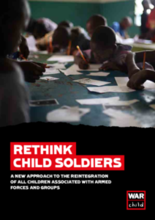Displaying 1 - 10 of 26
This webinar was a panel conversation hosted by the CPC Learning Network, ChildFund Alliance, the Program on Forced Migration and Health at Columbia University, and the Watchlist on Children and Armed Conflict that brought together a panel of experts to discuss the root causes leading to recruitment and involvement in activities of armed groups as well as the current context in countries such as Sudan, Colombia, Syria, Iraq, Yemen, and more.
Authored by the ODI in partnership with UNICEF, this paper assesses the benefits of inclusive social protection from a displacement and child-centred perspective.
This research report, developed by the IPC-IG and the UNICEF MENA Regional Office for Middle East and North Africa, presents five case studies that demonstrate how integrated social protection and child protection systems enhance efficiency, especially of the social service workforce, and improve socio-economic and child outcomes: Tunisia, Morocco, Iraq, Egypt, and Brazil.
This guidance provides an overview of the risks associated with COVID-19 outbreak that could cause children to be left without appropriate parental care, and provides scenarios for where children may be identified as separated in Iraq due to issues related to COVID-19.
This report from the UN Office of the SRSG on Violence against Children explores repatriation, rehabilitation, and reintegration of foreign, Iraqi and Syrian children who are being held in detention on suspected ISIS association or terror-related offenses, or in camps.
This guidance provides a short overview of the child protection (CP) risks associated with disease outbreak.
This country care review includes the care-related Concluding Observations adopted by the Committee on the Rights of the Child and the Committee on the Rights of Persons with Disabilities as part of the Committees' examinations of the periodic reports of Iraq.
This report by War Child aims to bring global attention to the challenges related to the reintegration of children associated with armed forces and groups, and promote better policy, practice and funding in the future.
This article tells the story of Amar Kanim, now an adult, who became known in the 1990s as "the little boy who had lost everything in a napalm attack" in Iraq, and his journey to find the family he thought he'd lost.
"Yazidi survivors groups have embraced a decision by the community’s elders to allow children who are the result of rape by members of Islamic State to return with their Yazidi mothers to their homelands in Iraq," says this article from the Guardian.

